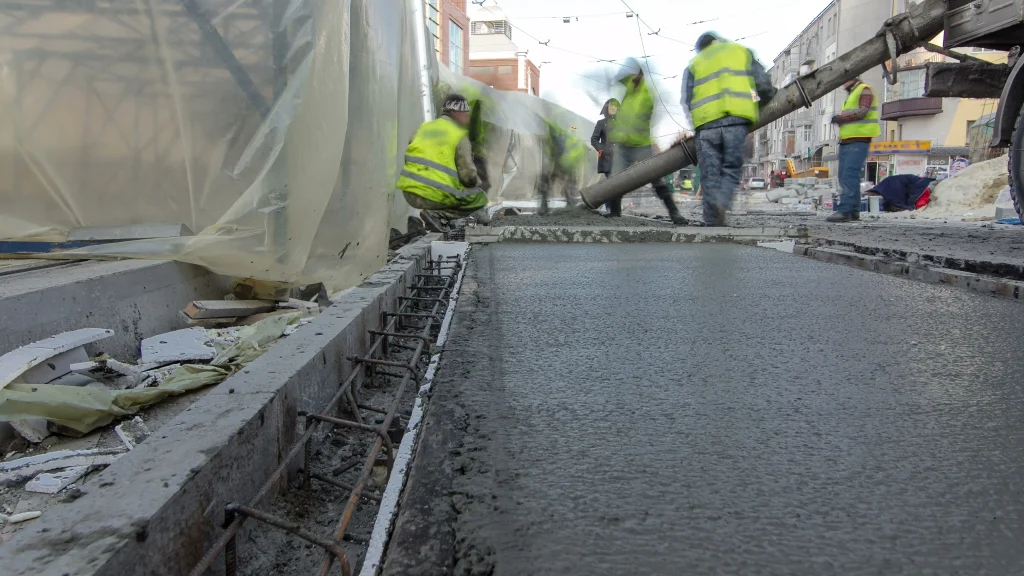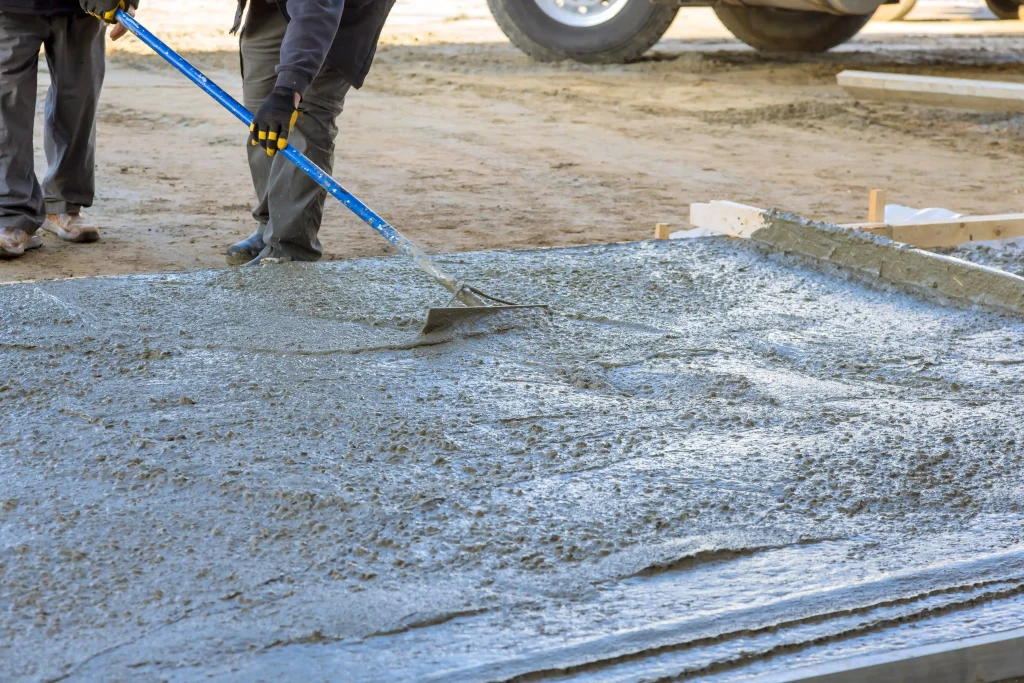Selecting the right concrete strength for your construction projects doesn’t have to be complicated. Understanding concrete grades is essential for ensuring your project’s success and longevity. Each concrete mix is engineered with specific strength properties to handle different structural demands.
Understanding Concrete Strength Classifications
Concrete grades use a simple naming system where ‘C’ represents the concrete strength measured after 28 days of curing. This number indicates the compressive strength in newtons per square millimetre (N/mm²) that the concrete can withstand.
When you see C20, this means the concrete mix can resist 20 N/mm² of compressive force after the standard 28-day curing period. The principle is straightforward: higher numbers indicate stronger concrete with greater load-bearing capacity.
Common Concrete Strength Grades for Construction Projects
C10 – Foundation and Non-Structural Applications
Concrete strength: 10 N/mm² after 28 days
C10 represents one of the lighter types of concretes in the standard range. This grade works well for:
- Patio slabs and garden pathways
- Blinding layers beneath main foundations
- Non-structural applications like kerbing
- Base preparation for other concrete work
C15 – Light Structural Work
Concrete strength: 15 N/mm² after 28 days
C15 provides adequate strength for lighter construction applications:
- Internal floor slabs in outbuildings
- Garden retaining walls
- Light domestic foundations for single-storey structures
C20 – Standard Domestic Construction
Concrete strength: 20 N/mm² after 28 days
C20 serves as the backbone for many domestic construction projects. This concrete mix excels in:
- Residential foundations where structural loads remain moderate
- Garage and workshop floors
- Domestic driveways and access roads
- Internal floor slabs for housing
C25 – Multi-Purpose Structural Concrete
Concrete strength: 25 N/mm² after 28 days
C25 represents the strongest of standard concrete mixes designed for general construction. Its applications include:
- Foundation footings for houses and commercial buildings
- Structural elements requiring enhanced durability
- Heavy-duty floor slabs
- Long-term performance applications
C30 – Commercial and Heavy-Duty Applications
Concrete strength: 30 N/mm² after 28 days
C30 begins the high-strength concrete category, specifically engineered for demanding applications:
- Commercial building foundations
- Roads and pavements supporting heavy vehicle traffic
- External works are exposed to severe weather conditions
- Industrial floor slabs supporting machinery
C35 and C40 – High Strength Concrete for Demanding Applications
Concrete strength: 35-40 N/mm² after 28 days
These grades represent specialist high-strength concrete mixes designed for challenging structural applications:
- Multi-storey commercial and residential buildings
- Bridge construction and infrastructure projects
- Industrial facilities requiring exceptional load capacity
- Precast concrete elements and specialist structures
How to Select the Right Concrete Mix
For Residential Projects:
- Garden features and patios: C10 or C15
- House foundations: C20 or C25
- Driveways and access roads: C20 or C25
- Garage floor slabs: C20
For Commercial Projects:
- Office buildings: C25 or C30
- Retail developments: C30
- Industrial facilities: C30 or higher grades
- Heavy machinery areas: C35 or C40
Professional Tip: Selecting a slightly stronger grade than the minimum requirement often provides better long-term performance and value, particularly for construction projects where durability matters most.
Compacting Concrete and Strength Development
Proper compacting concrete techniques significantly influence the final concrete strength. Well-compacted concrete achieves its design strength more reliably and provides better durability. The 28 days curing period allows the concrete to develop its full structural capacity, making this timeframe crucial for quality assessment.
Standards and Specifications
UK concrete grades follow BS 8500 standards, ensuring consistent quality and performance across different suppliers. These specifications guarantee that mixes designed to specific grades will meet their stated concrete strength requirements when properly placed and cured. For comprehensive information about concrete standards and specifications, the Concrete Society provides authoritative guidance on BS 8500 and concrete quality requirements.
Why Getting the Grade Right Matters
Using concrete that’s too weak can lead to cracks, structural problems, and costly repairs down the line. Using concrete that’s much stronger than needed simply wastes money. Getting it just right means your project will last for decades whilst staying within budget.
Express Concrete: Your Partner in Getting It Right
At Express Concrete, we’ve been helping London builders choose the right concrete grade since 1991. Whether you’re laying a garden path or constructing a commercial building, our experienced team knows exactly which ready mix concrete grade will work best for your project.
We offer all the grades mentioned above, plus our unique metered concrete service – so you only pay for exactly what you use. No waste, no guesswork, just the right amount of the right grade delivered when you need it.
Getting Your Quote
Still not sure which grade you need? That’s what we’re here for. Simply contact our team with your project details, and we’ll recommend the perfect concrete grade for your specific requirements. We’ll provide a competitive quote and arrange delivery at a time that works for you.
Remember, choosing the right concrete grade is one of the most important decisions for any building project. Get it right from the start, and your concrete will serve you well for years to come.




